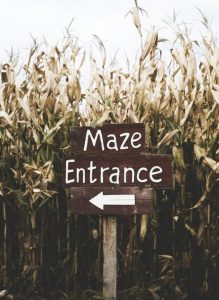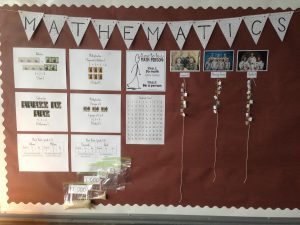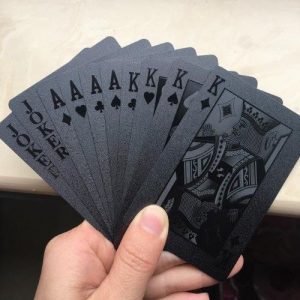Mathematical Concepts
Imagine entering a very large corn maze with instructions on how to get to the end: “Go straight for two turns, then turn right at the second right turn, then an immediate left, followed by a right at the second turn, then right again…” Pretty confusing, huh? You might get to the end but you’ll probably forget the instructions very soon after. Or you’ll just get frustrated and give up.

Now imagine you enter the corn maze with the only instructions being: “Try to get to the exit. If you get lost or scared, just call my name and I will help you.” I bet you’d have more fun, and you might even have a story about how you solved the maze puzzle!
This is how we learn new mathematical concepts. Rather than memorise instructions, students must attempt the question their own way in order to work through the problem. What matters is that we exercise our Math brains, not that we get the right answer. And this need not be a solo activity, either. We learn best when bouncing ideas off of each other.

Mathematical Fluency
Of course, part of exercising our Math Brain is practicing our Math Facts, such as: addition, subtraction, multiplication, division, number placement, fractions, etc. Fluency is good practice after we learn the concept, though never before.
Fluency requires regular practice. Don’t be surprised if your child beats you at some of our Math games. Although you may have learned Calculus at some point in your life, if you don’t practice your addition, you’re probably rusty!
Here’s a fun card game to play at home with your child:

- Divide the deck in two
- Leave the cards face down in front of you and your child
- At the same time, you both flip over the top card from your own pile
- The first person to add both cards together gets the cards
- The person with the most cards wins!
- A tie means you each get one card
- Works with multiplication
- Use face cards to increase difficulty (eg. King=13 or 30)
- Flip over two cards each to do double-digit addition!
- Or flip over two cards (a double-digit number) and one card (a single-digit number) to make your mental math a bit easier
- There are endless ways to practice Math with a deck of cards! Share your game with us!